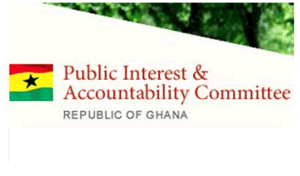PIAC not happy with government spreading petroleum revenue beyond 12 listed priority arears
 The Public Interest and Accountability Committee (PIAC), has expressed concern about the thin-spread of petroleum revenues for projects, resulting in paltry allocations.
The Public Interest and Accountability Committee (PIAC), has expressed concern about the thin-spread of petroleum revenues for projects, resulting in paltry allocations.
It said the inadequate funding made it difficult to appreciate any meaningful impact associated with the expenditure.
In an assessment of the management and utilisation of the Annual Budget Funding Amount (ABFA) mechanism over the years, PIAC said the government has been consistent in selecting the four priority areas as per the law.
However, actual expenditure normally stretches beyond the 12 listed priority thresholds, it said in an issue paper signed by Mr Noble Wadzah, the PIAC Chairman.
Another worrying trend, it said, was the non-utilisation of and accounting, for the full ABFA allocation even though the budgetary amount is disbursed to the ABFA account.
“PIAC’s visits to some projects earmarked to receive petroleum revenue revealed that they have been starved of funds at a time when revenues are reported to be unutilised and unaccounted for,” it said in the statement on the launch of an issue paper on the management and use of petroleum revenues.
The Committee also observes that over the years, some International Oil Companies (IOCs) have developed the practice of non-payment and deferred payment of Surface Rentals which is a source of petroleum revenue stream.
This practice undervalues the Ghana Petroleum Holding Fund, and does not comply with the provisions of the PRMA, PIAC said.
PIAC also observed a loophole in allowing the Minister for Finance to place a cap on the Ghana Stabilisation Fund (GSF) at his or her discretion as necessitated by macroeconomic conditions; albeit with the approval of Parliament.
“To place a cap on how much can be accrued to the Fund, there are no established criteria for the determination of the cap and use of proceeds,” the statement said.
“We note with concern that 10 years into oil, the effectiveness of an Investment Advisory Committee (IAC) is difficult to measure.
It said the country was still stuck to the practice of investing in low qualifying instruments; a practice we believe can be better improved with a well-resourced, functional, and independent IAC.
“The advice of the IAC is not mandatory on the Minister for Finance, undermining the core essence of the IAC,” PIAC said.
It is important to note that though some of these issues have been consistently raised in the Committee’s annual reports over time, it has attracted little or less attention.
It said 10 years into oil is an appropriate moment to reflect on how well or otherwise we have done with our oil.
The statement said PIAC’s believe that these issues would receive the needed attention among critical stakeholders.
“Mindful of the fact that our country’s resource governance is shaped by the thinking of political groupings (parties) and that these issues be given adequate attention in their manifestoes, policies and action steps,” it said.
The understanding that petroleum is a finite resource, hence the need for effective governance must not be lost on us, PIAC added.
Source: GNA
